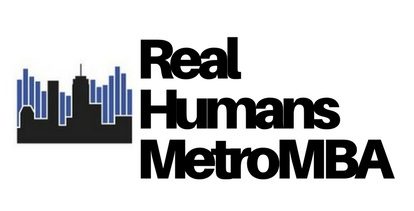Real Humans of the Miami Business School

The idea of a business school, for many, conjures images of rigidity: stuffed shirts, properly tuned haircuts, and brutalist, monochrome buildings—foundational visions of the business school stereotype. But these observations can be fairly limited, if not completely outdated. While some schools are still defined by business traditionalism, the University of Miami Business School offers a decidedly less obtuse vision.

The Miami Business School, overlooking Lake Osceola in Southern Miami, defies business school assumptions. Alongside the city’s effortlessly pleasant weather, potential students won’t find the the limited, formal degree options, with more choices than the vast majority of business schools virtually anywhere, including: three full-time MBA programs; three different Executive MBA programs; a part-time MBA option; Online MBA option; and five different dual MBA opportunities. In addition, the school offers eight on-campus specialized master’s options and two more online specialized masters degrees.
Simply stated, when it comes to a wealth of choices, you won’t find many schools that offer more.
Expansive opportunities also means an immensely diverse class of students. Statistically, Miami is considered the most “international” city in the United States, according to U.S. Census Bureau data, inviting a truly global array of career opportunities that few business schools can try to match.
When talking with several Miami Business School MBA students, the diversity of choices and Miami’s undeniably friendly international appeal is certainly reflective, including a French-born fitness expert, a clothing line founder, and a Venezuelan marketing guru, among others. Read on to see their stories and what the future may hold for life after an MBA.
Northwestern Research Finds Secret to Hot Streaks, and More – Chicago News

Let’s explore some of the most interesting stories that have emerged from Chicago business schools this week.
When You’re Hot, You’re Hot: Career Successes Come in Clusters – Kellogg Insights
In a new Nature paper, Northwestern Kellogg Associate Professor of Management and Organizations Dashun Wang and his co-horts reviewed the “career histories of thousands of scientists, artists, and film directors [and] found evidence that ‘hot-streak’ periods,” in which professionals seem to stumble upon major discoveries, “are both real and ubiquitous, with virtually everyone experiencing one at some point in their career.”
Wang, along with visiting student Lu Liu, Kellogg post-doctoral student Yang Wang, the University of Miami’s Chaoming Song, Central European University’s Roberta Sinatra, and Penn State’s Lee Giles, discovered that their findings “shed important new light on the patterns underlying success in all fields, and could be used to improve decisions about tenure, promotions, and hiring.”
You can read more about the group’s research here.
From Croatia’s World Cup Run to the Marketing Classroom – Quinlan School of Business Blog
Loyola Quinlan Clinical Professor of Marketing Katherine Sredl, who happens to be Croatian, heralded the “indescribable joy and pride” Croatians worldwide felt for the World Cup’s second-best team, due in large part to “the country’s small size and the strength of our competition.”
Professor Sredl explains that the pride she and her fellow Croatians feel for their country motivates her to “tell the stories of the people of the region, from the most to the least powerful and those in-between, women who worked in factories and are now unemployed, men who fought in the war and are now working to sustain peace.”
She adds that she hopes to serve the Bosnian, Croatian, Serbian students at Quinlan “by showing them that they can take that “Indescribable” feeling they might have—be it about the place they love or anything else — and reflect on how they can use it to “Go forth and set the world on fire,” as St. Ignatius inspired us and as we say at Loyola.”
Notre Dame IDEA Center Launches 27 Startups in First Year of Operation – Mendoza Ideas & News
The University of Notre Dame Mendoza College of Business announced that between July 2017 and June 2018, its IDEA Center launched 27 startups, 11 of which directly involve Mendoza students or alum.
The startups run the gamut industries, from health care to information technology, law, and media. The startups collectively “raised more than $4 million in investments or grants, created 83 new jobs, launched 23 products, and generated more than $500,000 in sales.”
The IDEA Center’s mission is to “build an ecosystem of high-potential startups in the South Bend-Elkhart region that grow rapidly and then attract venture capital, entrepreneurs and an increasing number of startups that create more jobs, all in a virtuous cycle of economic development.” Bryan Ritchie, Associate Provost and Vice President for Innovation, elaborates:
“The success of the IDEA Center’s strategy indicates that a strong focus on startups in the South Bend-Elkhart region will lead to the potential for significant economic growth, such as that seen in other technological hub cities in the country. In time, we believe this region will retain and attract even more of tomorrow’s brightest, most innovative minds.”
You can check out more about the IDEA Center here.
The 5 Important Things You’ll Need to Know When Getting an MBA

If you’ve gone through the rigamarole of an MBA application, chances are you’re feeling a bit taxed (no pun intended). Don’t slow down now! Sometimes when you have your life and education under the microscope it’s helpful to get a gentle reminder from a reliable source—like us—of what you hoped to get out of the degree in the first place. Here are a few tips that might help calibrate your b-school compass:
Practice On The Field
Cliff Oxford, founder of the Oxford Center for Entrepreneurs, wrote in the New York Times that certain traditional MBA programs are “like having athletes studying game film but never practicing on the field.” This is why many schools encourage students to apply for internships during enrollment or summer semesters. These opportunities can be competitive—especially if you have your mind set on a large company—but don’t let that deter you.
There are many ways to stay connected with the global marketplace, where you will be employed in only two years. For starters, keep applying and remain alert to positions that may have a greater potential for longevity. Interviews that don’t lead to an internship are still essential experiences. If your chosen program doesn’t have adequate outlets for students to engage with employers, ask for them.
Let A Mentor Set The Pace
Mentorships reinforce the idea that there’s no substitute for experience. For students too intimidated to reach out to a professor, consider that mentorships may be the most rewarding part of their job.
Many schools offer a mentorship program built into the curriculum. Large schools like the University of Oregon and the University of Miami pair students with local professionals to “meet regularly throughout the academic year to discuss everything from study habits to career choices.” Schools have reported that these connections are pivotal for students in achieving their ideal positions and cultivating life-long relationships in the field.
Mentorship is also a staple of the career path designed for students at powerhouse business schools like the Yale School of Management, which recently revamped its WE@Yale program.
Change Your Perspective
When under pressure, remember to give yourself a break. Exercise and meditation are steadfast options, but use your imagination. Jerry Seinfeld reportedly displayed images from the Hubble Space Telescope on the walls of his writing room to calm his nerves. ”I don’t find being insignificant depressing. I find it uplifting.”
Completing your MBA is a personal exploration above all else. Don’t forget your true entrepreneurial spirit while finding your footing. After all, changing ones career is the second most common reason, according to students, that they pursue an MBA in a first place.
Experiment With Electives
Special projects and electives are a chance to step out of your comfort zone. These courses are updated on a yearly basis, meaning that they cover cutting-edge topics that can open up new worlds and help you garner skills that separate you from the rest.
For example, the Stern Signature Project at the NYU Stern Center for Business and Human Rights recently led students to create a business plan “focused on sustainable employment and profit” for a private Kenyan social enterprise.

The NYU Stern Center for Business and Human Rights launched in 2013, focusing on various issues like manufacturing, sustainability, and much more.
Get To Know Your Pack
A drive to succeed doesn’t mean that you have to be the lone wolf on Wall Street. Every MBA program has students who come from unique backgrounds, cultures, and histories. These are your future colleagues. They’re also hidden mentors who may be your most valuable supporters.
Many schools, like the Wharton School at the University of Pennsylvania, actively acclimate their students together with unique Olympic-like events, helping bridge the various cultural gaps of the incoming students. Not only are these events fun, unless you hate being outside or sack races, but they are potentially powerful networking events for you and your peers.
